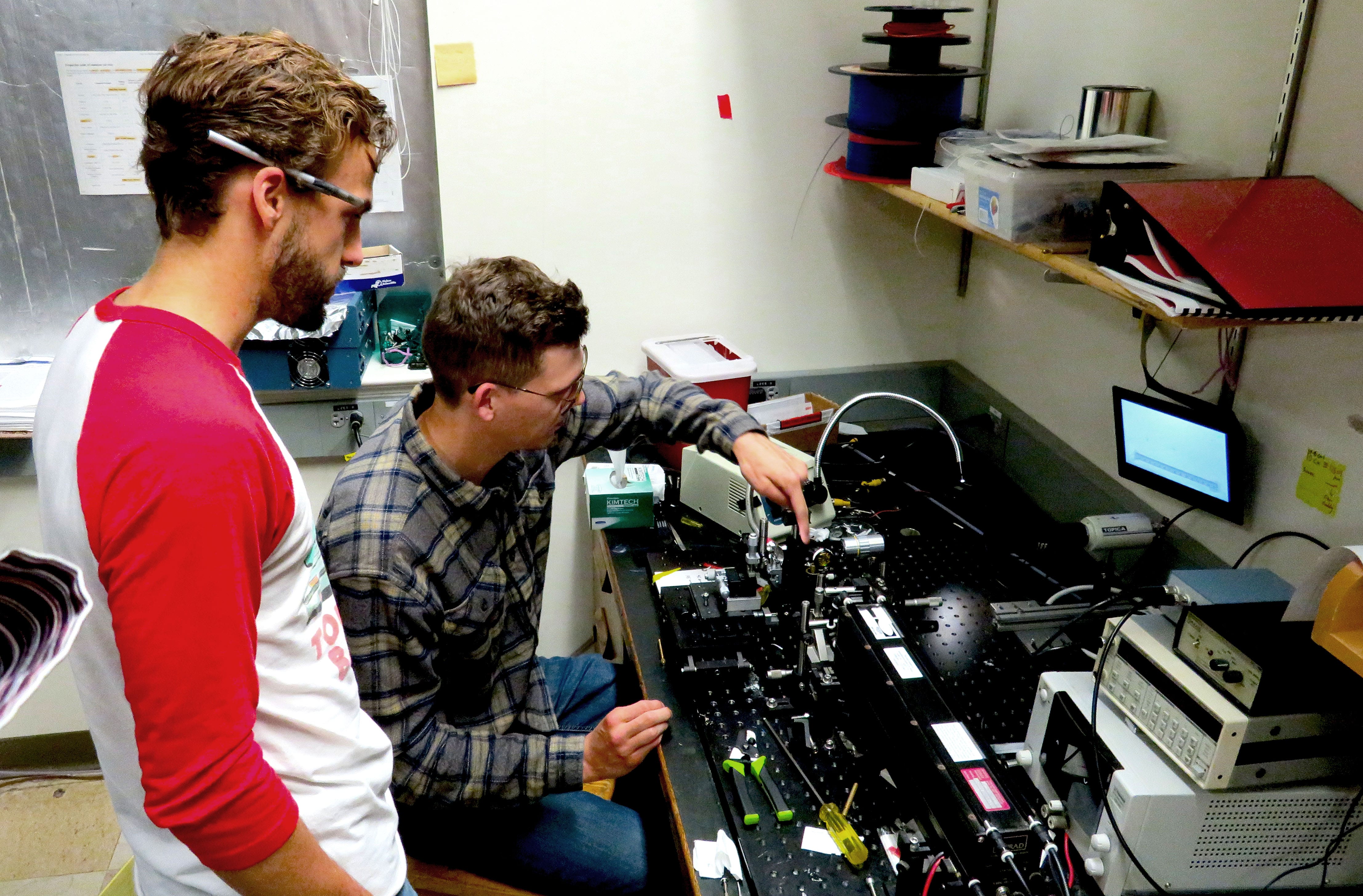
Optical Research
There is a long tradition of optics in science, from ancient times to Newton and Einstein, continuing through many Nobel prizes, and leading to the present.
Resources
Information and tools of OMQ members to schedule facilities and request administrative assistance.

There is a long tradition of optics in science, from ancient times to Newton and Einstein, continuing through many Nobel prizes, and leading to the present. The ability to control light and matter with high precision opens the possibility for many new discoveries and technologys. Fellowships are available.
For graduate students, OMQ programs provides opportunities for research in fundamental areas of physics and chemistry. At the same time, our center also provides an enabling set of technologies for application in the life sciences and industry. It is this unique combination of fundamental science coupled with practical applications that opens many career paths.
